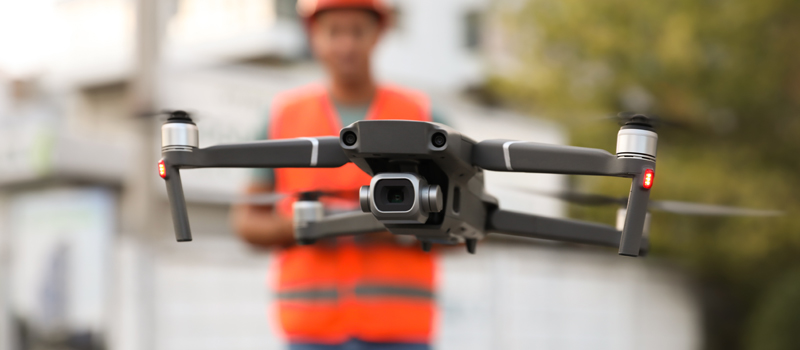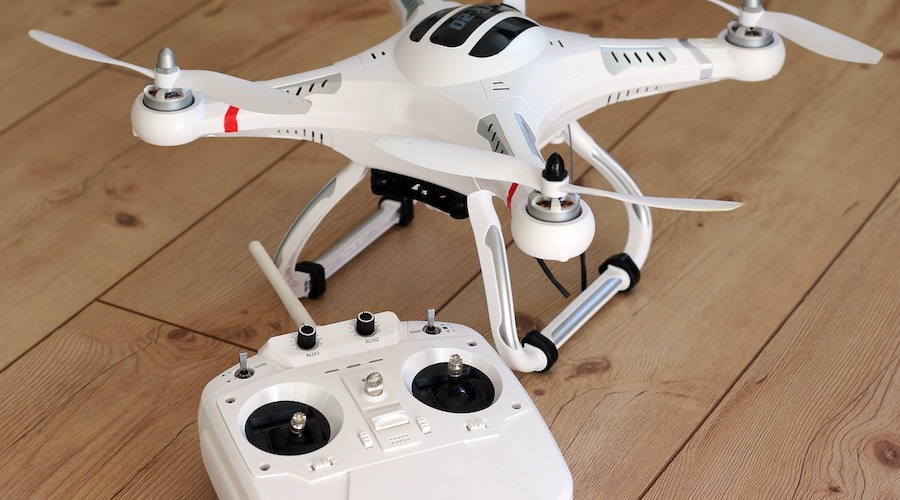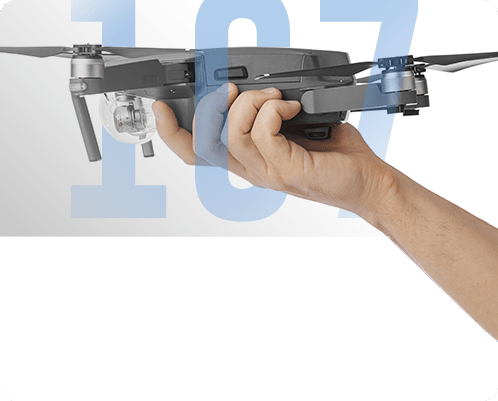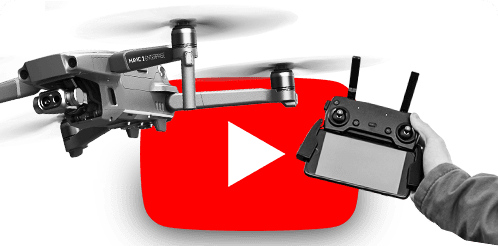-
Do drone pilots need a medical certificate to fly professionally or recreationally?
-
What do the Part 107 rules say?
-
Why is the medical certificate not a requirement?
-
Does the FAA have a list of medical conditions that can prevent you from flying a drone?
-
How to do a self-assessment to determine if you are fit to fly a drone
- Drone News Update
-
Final thoughts
No, drone pilots do not need any sort of medical certificate. Instead, the FAA relies on drone pilots to do a self-assessment on their physical and mental conditions, and to determine if they are fit enough to fly a drone according to a few guidelines.
Much like putting a blind man in the driver’s seat of a car, it’s easy to imagine the danger of allowing a person with certain physical and mental deficiencies to fly a drone. After all, drone pilots need to have a keen sense of awareness of their surroundings and must be able to react quickly enough to avoid untoward incidents.
If the physical and mental condition of the drone pilot is so important, does this also mean that a drone pilot needs to have a medical certificate on hand? In the absence of a medical certificate, what is the minimum level of mental and physical fitness that the FAA expects of drone pilots?
Do drone pilots need a medical certificate to fly professionally or recreationally?
The Part 107 rules do not require any medical certificate for an applicant before they can be granted a Part 107 remote pilot certificate. Naturally, there is no such requirement as well for recreational drone pilots. Instead, the FAA expects drone pilots to do a self-assessment each time they fly their drones to determine if they are in the proper physical and mental condition.
This rule is in stark contrast to the requirement for a valid airman medical certificate to exercise the privileges of a student pilot certificate, recreational pilot certificate, private pilot certificate, commercial pilot certificate, or airline pilot certificate. Why the huge difference? Let’s start looking for the FAA’s justification by looking at the Part 107 rules.
What do the Part 107 rules say?
Regarding the state of health of the remote pilot, Section 107.17 states:
“No person may manipulate the flight controls of a small unmanned aircraft system or act as a remote pilot in command, visual observer, or direct participant in the operation of the small unmanned aircraft if he or she knows or has reason to know that he or she has a physical or mental condition that would interfere with the safe operation of the small unmanned aircraft system.”
The rule is quite general, but there two parts to take note of. A person who is in no condition to fly a drone is also assumed to be in no condition to act as support crew, even as a visual observer or an assistant remote pilot-in-command. Second, the ultimate qualifier of whether a person is fit to fly a drone is whether they can do it in a SAFE manner.
The rule makes no explicit mention of any physical or mental conditions, which could be considered as incapacitating for a drone pilot. However, we can adopt guidelines from various community-based organizations to lessen the ambiguity of this rule.
Why is the medical certificate not a requirement?
The rule to NOT require a medical certificate wasn’t exactly accepted eagerly by the entire drone community. Back when the FAA first published the proposal for Part 107, there was a significant number of commenters who suggested adding a requirement for an airman medical certificate. After all, the medical certificate has already been an established requirement for pilots of manned aircraft.
The FAA argued that the hazards posed by an unfit person flying a manned aircraft were much more severe than any unmanned aerial vehicle. Aside from the fact that there are no people on board a drone who could be injured in the event of an accident, drone operations are typically restricted within specific areas and altitude ceilings.
The FAA also believes that the current restrictions on drone flight already provide enough protection against several personal injury or property damage. These include restrictions in flying a drone over people and moving vehicles, flying only within visual line-of-sight, and limiting the drone’s ground speed to only 10 mph. Moreover, Part 107 pilots are required to do a pre-flight inspection of their drones and to maintain flight records.

Does the FAA have a list of medical conditions that can prevent you from flying a drone?
Many commenters also suggested that the FAA release a list of medical conditions that could be considered sufficiently incapacitating for a drone pilot. The FAA also did not resort to this, arguing that different medical conditions may have different effects on how a person can handle a wide range of drone operations.
For instance, a person who lacks the dexterity to operate the sticks and buttons of a remote controller may still be able to fly a drone using visual commands. For those who are in doubt of how their conditions can affect how well they can act as a drone pilot, the FAA recommends consulting a physician for professional advice. In any case, the FAA believes that a self-assessment is a sufficient measure to prevent any health-related drone accidents.
How to do a self-assessment to determine if you are fit to fly a drone
In the absence of any strict rules on doing a self-assessment prior to flying a drone, many people have been asking if there are guidelines that can be followed instead. To come up with such a list, we look to the expertise of community-based organizations and the people who have spent several years flying drones. Here are some physical and mental conditions to take note of:
- Any instance of blurred vision that will prevent you from seeing your drone or any potentials clearly. Drone pilots are expected to maintain “see and avoid” vigilance at all times, and the lack of clear vision may mean that you cannot perform the necessary evasive measures on time to avoid crashes.
- Any temporary or permanent loss of dexterity that may prevent you from operating a drone using a remote controller. A crash may occur if you end up issuing the wrong commands to your drone because such a condition, especially if you’re flying near obstacles. A loss in dexterity will also make it difficult to react to dangerous conditions, such as an incoming manned aircraft or another drone in the vicinity.
- Any condition that will result in reduced situational awareness is considered dangerous for drone pilots. There could be many reasons for such a condition. If you have taken alcohol, drugs, or any medication that can cause dizziness or a state of lethargy, then you may want to wait until those effects dissipate. This can also be caused by a debilitating physical condition such as a migraine or any severe body ache. A good rule of thumb to follow is that you aren’t able to drive a car or operate any heavy machinery in your current state, then you probably aren’t fit to fly a drone.
- If you are flying a drone flight mission that needs a crew, then any condition that will cause a hearing or speaking impairment could jeopardize the safety of your mission. This is true whether you are the pilot-in-command or are merely providing support as a visual observer. Take note that one of the important characteristics of a drone flight crew is effective communication. However, the FAA allows alternative forms of communication if verbal methods are unavailable, such as communication by sign language.
Final thoughts
Despite the lack of strict regulations on physical and mental fitness, the FAA still recognizes its importance in drone flight. The only reason that the FAA is giving such a wide berth to drone pilots with regards to the matter is that they believe that the existing flight restrictions already act as sufficient safety measures against drone flights causing any personal injury or property damage.
The FAA also expects drone pilots to exercise their sound judgment when assessing if they are in the proper condition to fly a drone. Drone pilots certainly enjoy this freedom, and the best way to keep it is to use it responsibly.





